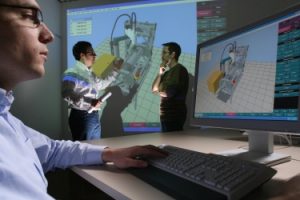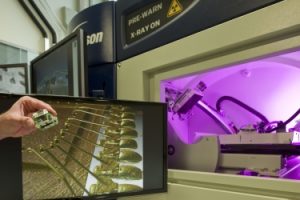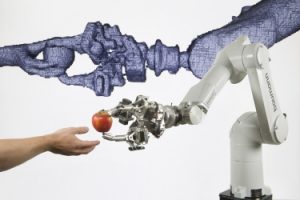Background:
Recent trends like natural language processing, autonomous driving, service robotics, or Industry 4.0 (I4.0) are mainly based on the tremendous progress made in the field of artificial intelligence (AI). Above all, machine learning (ML) techniques are of utmost importance, allowing computers to learn from data without being explicitly programmed. The increased data availability coupled with affordable computing power and extensive software solutions has laid the foundation for using such algorithms in a wide range of industrial applications, e.g. for predictive maintenance, quality prediction, machine vision, or process control.
Being confronted with increasing requirements due to electric mobility and continuing industrial automation, efficient manufacturing processes for electric electric drives manufacturing are more important than ever. As traditional process improvement methods are increasingly reaching their limits, ML is seen as the means to meet the ever-rising requirements in terms of time, costs, and quality. Therefore, the intelligent analysis of material, process, and quality data promises great potential for tomorrow’s electric drives production.
Possible thesis:
So far, only a few studies have dealt with the potential of ML in electric drives production, indicating first useful application scenarios. Therefore, within the scope of this thesis, the application of cutting-edge ML, in particular deep learning (DL) techniques shall be evaluated using various datasets from electric drives production. The thesis is roughly divided as follows:
- Problem definition (e.g., visual inspection, predictive maintenance, predictive quality, process monitoring, process control) and brief literature research on related approaches, which one can orientate oneself
- Familiarization with the relevant ML/DL techniques depending on the algorithmic focus agreed with the supervisor, e.g., Autoencoders, Generative Adversarial Networks (GAN), Stable Diffusion, Transformers, Self-/Semi-Supervised Learning, Large Language Models (LLM), or others
- Analysis of the provided dataset(s) from electric drives production comprising tabular, time series, text, and/or image data, depending on the agreed problem
- Implementation and evaluation of suitable cutting-edge ML/DL approach, following the established CRISP-DM procedure model using Python and state-of-the-art packages like PyTorch, Pandas, scikit-learn, etc.:
- Data understanding and pre-processing
- Building, optimizing, and evaluating different models
- Discussion and outlook on further development possibilities
The exact tasks will be worked out in a joint discussion depending on prior knowledge, personal interest, and the kind of thesis (bachelor/project/master). This thesis is particularly suitable for students with a high affinity for IT who enjoy programming and want to explore cutting-edge ML and DL algorithms on industrial datasets.
Hints and application:
- Thesis can be worked on completely from home office, if desired
- Remote access to a high-performance AI computer with GPU can be provided
- Virtual regular meetings in German or English, as desired
- Please send questions and/or applications with resume and transcript of records via e-mail (andreas.mayr@faps.fau.de)
Contact:







